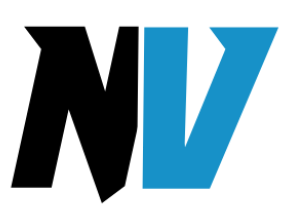Learning how to start a home-based freelance writing business offers an exciting and flexible career path. This business model involves creating content such as blog posts, articles, marketing copy, or technical documents for various clients on a project basis. Freelance writers work independently, typically from home, choosing their clients and projects to craft a personalized and adaptable work experience.
Starting a freelance writing business from home provides numerous advantages, including the freedom to set your schedule and the opportunity to work from any location. The initial costs are minimal, making it a low-risk venture for aspiring entrepreneurs. This work-from-home setup promotes a healthier work-life balance, allowing you to integrate personal and professional responsibilities more effectively. Additionally, the global nature of freelance writing means you can collaborate with clients from various industries, exposing you to a wide range of opportunities.
Freelance writing is accessible to anyone with strong writing skills and a dedication to professionalism. While a formal background in writing or journalism can be beneficial, it is not essential. What matters most is a commitment to refining your craft, understanding industry trends, and consistently delivering quality work. By following key steps, you can successfully establish and grow your home-based freelance writing business.
Preparing to Start Your Home-Based Freelance Writing Business
Understanding how to start a home-based freelance writing business begins with preparation. First, evaluate and enhance your writing skills to ensure you’re ready to meet client demands. Identify your strengths—whether it’s persuasive copywriting, storytelling, or technical documentation—and focus on honing those areas. Online courses, writing workshops, and tools like Grammarly or Hemingway can refine your grammar and style, helping you produce polished, professional work. Strengthening your skills early on sets the foundation for a successful freelance writing career.
Choosing a niche is critical for differentiating yourself in the competitive freelance market. Specializing allows you to position yourself as an expert in a specific area, attracting clients who value your expertise. Common niches include SEO writing to improve search engine visibility, technical writing for manuals and guides, blogging for websites, and copywriting for marketing campaigns. Selecting a niche that aligns with your interests and strengths will make your work more enjoyable and boost your chances of building a strong reputation.
Lastly, set clear goals for your freelance writing business. Define short-term objectives, like building a portfolio or landing your first clients, and long-term ambitions, such as scaling your income or establishing yourself as an industry expert. Knowing your priorities—whether achieving financial stability, working flexible hours, or gaining recognition—will guide your efforts and keep you motivated. With a clear roadmap, you can confidently launch and grow your home-based freelance writing business.

Setting Up Your Home-Based Freelance Writing Business
Establishing a solid foundation is a key step in how to start a home-based freelance writing business. Begin by addressing the legal aspects. Decide on a business structure—most freelancers start as sole proprietors due to simplicity, but forming an LLC offers liability protection. If you plan to operate under a name different from your own, register your business name with local authorities. Additionally, check your region’s requirements for any licenses or permits necessary to run a freelance writing business from home.
Financial organization is equally critical. Open a dedicated business bank account to separate personal and business finances, which simplifies tracking income and expenses. Freelancers are responsible for their taxes, so maintaining detailed financial records is essential. Consult with a tax advisor to understand your tax obligations, including estimated quarterly tax payments. Proper financial planning ensures compliance and prevents tax-related issues down the line.
To streamline client payments, use professional invoicing tools like FreshBooks, Wave, or PayPal. These platforms make it easy to create and send invoices, track payments, and follow up on overdue accounts. Establishing a professional financial workflow saves time and enhances your credibility with clients, paving the way for a smoother business operation.
Building Your Portfolio for a Home-Based Freelance Writing Business
Creating a strong portfolio is a crucial step in how to start a home-based freelance writing business. Your portfolio acts as a showcase of your writing skills, style, and expertise, helping potential clients evaluate whether you’re the right fit for their projects. By displaying your best work, you establish credibility and stand out in a competitive market, demonstrating why clients should choose you over others.
If you’re just starting and lack client work to feature, create writing samples tailored to your desired niche, such as blog posts, sales copy, or technical documents. These samples should reflect the type of work you aim to attract, helping clients envision the value you can bring to their projects. As you gain experience, replace these initial samples with real client work to build a portfolio that highlights your versatility and expertise. Over time, your evolving portfolio will become a powerful testament to your growing skills and accomplishments.
A professional portfolio website is one of the most effective ways to present your work. Platforms like WordPress, Wix, and Squarespace offer user-friendly options to create an appealing site. Include sections for diverse writing samples, a compelling bio outlining your background and niche expertise, and an easy-to-use contact form for inquiries. Ensure your site is visually appealing, easy to navigate, and aligned with your brand.
Enhance your portfolio further by contributing guest posts to reputable blogs or publications in your niche. These bylined pieces add credibility and give you additional work to showcase. Additionally, consider creating in-depth projects like eBooks or whitepapers to demonstrate your ability to handle complex assignments. By curating a diverse and professional portfolio, you’ll position yourself as a reliable and skilled freelance writer ready to take on a variety of projects.
Finding Freelance Writing Clients for Your Home-Based Business
Securing clients is a critical step in how to start a home-based freelance writing business. Networking is one of the most effective ways to establish connections and grow your client base. Attend virtual and in-person events within your niche, join industry-specific online forums, and engage with professionals on platforms like LinkedIn and Twitter. Sharing insights, participating in discussions, and offering expertise can boost your visibility and help you build valuable relationships with potential clients or referrers.
Freelance job boards such as Upwork, Freelancer, and ProBlogger are excellent resources for finding writing opportunities. These platforms regularly post gigs ranging from blog writing to technical documentation. When applying, tailor your proposals to address each client’s needs, highlighting relevant skills and work samples. A personalized approach can set you apart in a competitive marketplace and increase your chances of securing projects.
Cold pitching is another effective strategy for finding clients. Research potential clients or companies in your niche and craft personalized pitches that demonstrate how your services can address their needs. Include examples of similar work and suggest specific ways you can add value to their business. Following up politely after your initial pitch can further demonstrate your interest and professionalism, increasing the likelihood of a positive response.
Social media is also a powerful tool for client acquisition and personal branding. Use LinkedIn to connect with industry professionals, showcase your expertise, and explore job postings. Platforms like Twitter can help you join conversations relevant to your niche and share valuable content to establish authority. By consistently engaging with your audience and demonstrating your expertise, you’ll position yourself as a trusted writer, attracting clients to your home-based freelance writing business.
Setting Your Rates as a Home-Based Freelance Writer
A crucial step in how to start a home-based freelance writing business is determining your rates. Begin by researching market trends within your niche. Use resources like industry surveys, job boards, and writing forums to understand the typical pay range for writers with similar experience. Consider factors such as your expertise, the project’s complexity, and the client’s budget to position your rates competitively without undervaluing your work.
There are three main pricing models for freelance writers: hourly, per-word, and project-based. An hourly rate is ideal for projects with uncertain scope but may limit earning potential if you work quickly. Per-word rates are common for blog posts and articles, though they may not reflect additional efforts like research or revisions. Project-based rates, on the other hand, offer flexibility by allowing you to price based on the overall value and complexity of the project, making it a popular choice for many writers.
As your skills and reputation grow, it’s natural to adjust your rates. When increasing your fees, communicate clearly with existing clients, providing advance notice and explaining the added value you now bring. For example, a larger portfolio, improved expertise, or heightened demand for your services can justify a rate increase. Most clients will appreciate the transparency and recognize that your rates evolve alongside your professional growth.
Managing Clients and Projects in a Home-Based Freelance Writing Business
An essential part of how to start a home-based freelance writing business is mastering client and project management. Effective communication is key: establish clear expectations early by outlining project details, deadlines, and deliverables in your initial discussions. Transparency from the start minimizes misunderstandings and sets the tone for a professional relationship. When addressing feedback and revisions, remain open and professional, handling changes within the project’s scope. To prevent scope creep, set boundaries and clarify that additional requests may require renegotiation or extra fees.
Contracts are vital for safeguarding both you and your client. Ensure your contract includes essential clauses, such as the scope of work, deadlines, payment terms, and intellectual property rights. This ensures both parties have a shared understanding of the project’s terms. While freelance contract templates can provide a useful framework, tailor each agreement to reflect the unique requirements of your project. A well-drafted contract not only protects you but also enhances trust and professionalism.
Leverage project management tools to stay organized and meet deadlines. Platforms like Trello, Asana, and Monday.com allow you to manage tasks, deadlines, and deliverables efficiently across multiple projects. These tools help track progress, assign tasks, and set reminders to keep your workflow streamlined. For simpler needs, Google Sheets can serve as a straightforward way to monitor timelines and milestones, ensuring you maintain high-quality outputs while juggling multiple clients.
Time Management and Work-Life Balance for Freelance Writers
When learning how to start a home-based freelance writing business, mastering time management and work-life balance is essential for sustained success. Begin by creating a dedicated home office—a comfortable, well-lit space free from distractions. This workspace fosters focus and helps separate work from personal life, making it easier to transition between the two. A clear physical boundary can significantly improve your productivity and professional mindset.
Effective time management is key to handling the demands of freelancing. Techniques like time blocking—allocating specific time slots for tasks—or the Pomodoro Technique, which alternates between focused work intervals and short breaks, can keep you productive without feeling overwhelmed. With multiple clients and deadlines, a structured schedule ensures you meet commitments while avoiding burnout. Equally important is setting boundaries: establish clear working hours and communicate them to clients, preventing work from encroaching on personal time.
Maintaining work-life balance requires prioritizing self-care and downtime. Take regular breaks and engage in activities like exercise or hobbies to recharge. Balancing physical health and mental well-being is crucial for long-term productivity. By setting boundaries and maintaining a healthy routine, you can enjoy the flexibility of freelance writing while avoiding the pitfalls of overworking, ensuring a sustainable and fulfilling career from home.
Marketing and Scaling Your Freelance Writing Business
The first step in successfully marketing and growing your freelance writing career is creating a powerful personal brand. Your brand is more than just your writing skills—it’s how you present yourself as an expert in your niche. Develop a unique voice and style that resonates with your target audience and sets you apart from other writers. Present your area of expertise regularly on your website, social media, and the content you write. Whether it’s through blog posts, case studies, or engaging online discussions, make sure your brand reflects the value you offer to potential clients.
Growing your network is another key factor in scaling your business. To increase your reach, make use of recommendations and endorsements from pleased customers. Positive word-of-mouth can be one of the most powerful marketing tools. Encourage clients to refer you to others in their network and ask for testimonials that you can feature on your website or portfolio. These endorsements build trust and credibility with new clients, helping you attract more business without having to actively market yourself.
As you gain experience, consider expanding your service offerings to appeal to a broader range of clients. In addition to writing, you could offer related services like editing, consulting, or writing coaching. Editing services allow you to refine others’ work, consulting positions you as a guide for businesses looking to improve their content strategies, and coaching helps aspiring writers improve their craft. By diversifying your services, you can create multiple income streams and provide more comprehensive solutions to clients, making your business more resilient and versatile.
When your workload increases, outsourcing or hiring help may become necessary to continue scaling. Start by outsourcing smaller, administrative tasks like scheduling or invoicing, which free up time for high-value work. As your client base grows, you might consider hiring additional writers to help meet demand. Gradually building a team enables you to take on larger projects and clients, allowing your business to grow beyond what you could manage alone. Strategic delegation is key to sustaining growth while maintaining the quality of your services.

Overcoming Common Challenges
Facing client rejections and revisions is a common challenge for freelance writers, but it can be a valuable learning experience. Rejections should not be seen as a failure but as an opportunity to improve your craft. Use the feedback to identify areas where you can enhance your writing and approach future projects with a growth mindset. Similarly, handle revisions with professionalism, viewing them as a chance to refine your work and better meet client expectations, which ultimately strengthens your relationships and credibility.
Inconsistent income is another reality of freelancing, as work can fluctuate from month to month. To manage this, create a budget that accounts for the variability in your earnings. Set aside a financial cushion during periods of higher income to help cover expenses during lean times. Additionally, diversifying your client base and service offerings can help mitigate these fluctuations by ensuring you have multiple streams of revenue to rely on.
Maintaining self-discipline and motivation is crucial for long-term success in freelancing. Without the structure of a traditional office environment, it’s important to develop a routine that helps you stay organized and productive. Setting clear goals for your business, such as income targets or skill improvements, can keep you motivated and focused. Regularly reviewing your progress and adjusting your strategies ensures that you stay on track, continue growing, and adapt to new challenges as they arise.
Conclusion
Starting a freelance writing business involves several key steps, beginning with assessing and refining your writing skills. From there, setting up your business structure, building a strong portfolio, and finding clients are critical milestones that pave the way for growth. Managing client relationships and projects effectively will ensure smooth operations, while scaling your business with additional services or outsourcing tasks allows you to expand your reach. Each step builds on the next, guiding you toward establishing a successful freelance writing career.
The most important part of this journey is simply taking that first step. Whether it’s setting up your website, crafting your first writing samples, or reaching out to potential clients, action is the catalyst for success. Start by laying a solid foundation for your business, and then focus on gradually building your portfolio and client base. Although it takes perseverance, freelance work can develop into a fulfilling and long-term professional path with enough time and effort.
As you progress, continuous learning and improvement are essential for long-term success. Stay updated by reading industry blogs, taking writing courses, and joining professional networks where you can exchange ideas with other writers. Adaptation is key in the ever-evolving freelance world, and investing in your development will ensure that you stay competitive and grow your business over time.

